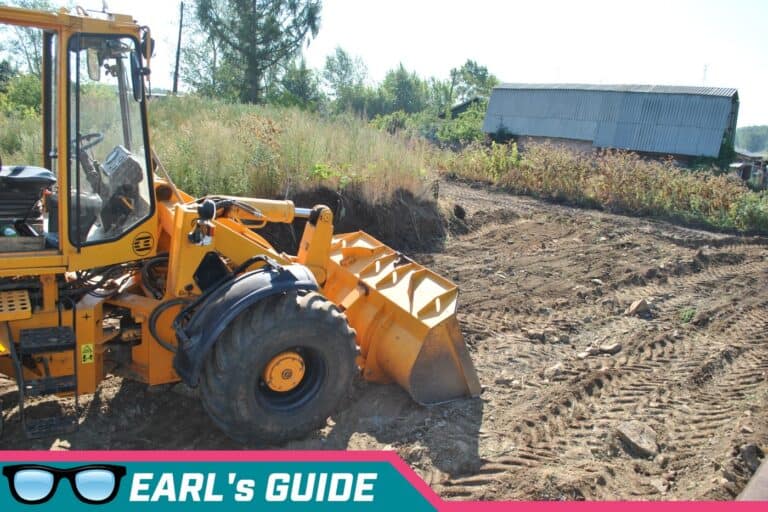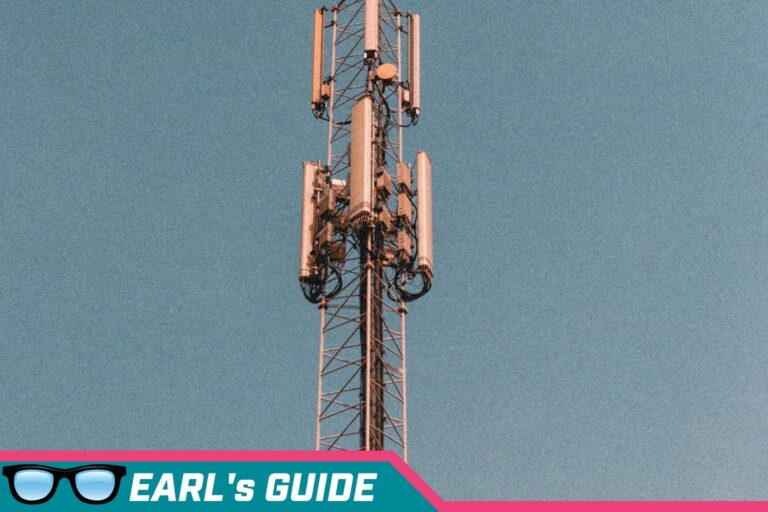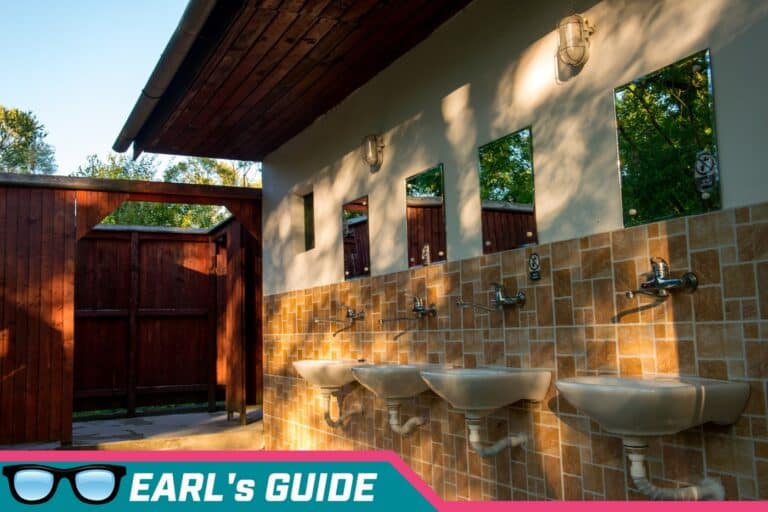The RV industry has seen remarkable growth over the past few years, with an increasing number of people choosing life on the road or vacationing in the great outdoors. As RV Park owners and managers, we’re charged with ensuring that these travelers have a pleasant, secure, and comfortable stay. A particular challenge in this endeavor is late check-ins. How late is too late? Should you staff the later hours, or can you create a system that allows for self-check-in? In this article, we will delve into these issues, along with introducing a modern solution for payment: the late or same-day check-in via Venmo or Cash App.
The Dilemma: How Late is Too Late?
RV travelers, by nature, can have unpredictable schedules. The freedom of the road means they might be delayed by a scenic detour or an unplanned stop. As a result, they might arrive at their destination later than initially intended. But how late should an RV park allow check-ins?
Late check-ins can be disruptive. RVs aren’t the quietest of vehicles, and their maneuvering can create noise and disturb other campers, especially during nighttime hours. Yet, at the same time, it’s crucial to offer flexibility for your guests who might have faced unforeseen circumstances during their travels.
Staffing During Late Hours:
Having staff available during later hours can help manage late check-ins more efficiently. They can guide newcomers to their spot, ensuring minimal disturbance. However, this solution comes with its own set of challenges:
- Increased Operational Costs: Extended hours mean extra wages. Depending on the frequency of late arrivals, this might not be a cost-effective solution.
- Safety Concerns: Late-night shifts can pose safety risks for staff, especially in remote areas.
- Inconsistency: If you don’t have late arrivals every night, your staff might be idle on many occasions.
Self Check-In Systems: A Solution
One potential solution that many RV parks are adopting is the self-check-in system, often facilitated through a late check-in board.
A check-in board typically has:
- Clear instructions for late arrivals.
- Assigned spots for those with reservations.
- Maps of available spots for walk-ins.
- Envelopes for payment or instructions for digital payment.
This method allows campers to find their way without disturbing others, and they can settle payment and other formalities the next morning.
Late or Same-Day Check-In Payment via Venmo or Cash App:
Modern problems require modern solutions. One of the hurdles with late check-ins has always been the payment. Not everyone is comfortable leaving cash in an envelope, and not every RV park has the facility to process credit cards late at night.
Enter digital wallets like Venmo and Cash App. These platforms allow for instant transactions with minimal fees. By integrating such a system:
- You Provide Convenience: Campers can easily pay using an app without needing cash on hand.
- You Ensure Safety: No cash handling means less risk for theft or misplacement.
- You Get Instant Confirmation: A notification lets you know the payment has been made.
Every day at our RV park, we understand the need for flexibility, especially for travelers arriving late or without prior reservations. To cater to this unique set of guests, we’ve instituted a comprehensive yet user-friendly system. Each day, our team meticulously scours the park, identifying sites that are projected to be available for a duration of at least 3 to 4 nights. This preemptive measure ensures that guests won’t find themselves in the inconvenient position of having to relocate during their stay. We curate a diverse mix of sites, encompassing options like 30 amp and 50 amp hookups, pull-through sites, and others, so that there’s something to suit every RV’s needs. These available slots, complete with their pricing, are then posted on a board outside our office. For the modern traveler, ease of payment is a must. Hence, we allow guests to quickly and securely cover their stay through Venmo or Cash App, ensuring a hassle-free check-in experience even outside regular office hours. This system not only streamlines the process for late arrivals but also fosters a sense of welcome, right from the outset.
The Complexities of Night-time RV Check-ins: Delving Deeper into Security and Safety Concerns
Navigating the ever-evolving demands of RV park management requires a thoughtful approach, especially when considering the ramifications of late-night check-ins. Beyond the initial concerns of disturbance and inconvenience, there are deeper issues related to security, safety, and potential damage. Let’s delve into the intricacies of these challenges.
1. Security Challenges of Staffing Late Hours:
Safety of Staff: Having staff available during later hours might seem like an optimal solution for managing late check-ins. However, there’s the pressing concern of their security. Night hours, especially in remote or less lit areas, can make staff vulnerable to potential threats or confrontations with disgruntled or inebriated guests.
Monitoring and Surveillance: Late-night hours might necessitate added surveillance measures. This could mean investing in more security cameras, hiring security personnel, or setting up well-lit areas for check-ins to deter potential mischief or theft.
2. Risks of Damage During Late Check-ins:
Navigation Issues: Night-time driving within an RV park is fraught with its own challenges. Reduced visibility can make it difficult for drivers to see and navigate through the layout of the park. Campers unfamiliar with the park’s terrain and layout might find it challenging to maneuver their RVs without incident.
Infrastructure Damage: A common casualty of late-night RV maneuvers includes damage to park infrastructure. This could range from:
- Running over sprinklers, leading to potential water damage and repair costs.
- Colliding with building awnings or low-hanging roofs. Such incidents not only lead to repair expenses but could also compromise the safety of structures.
- Driving over or into other campsites, which might ruin landscaping, damage utility hook-ups, or even pose a risk to other campers.
3. Increased Liability:
With the potential for more accidents at night, RV parks face an increased liability risk. Whether it’s damage to a camper’s property due to inadequate signage or injury caused by an unnoticed hazard, these incidents can lead to potential legal repercussions and increased insurance premiums.
4. Environmental Impact and Aesthetics:
RVs that veer off designated paths might end up causing environmental damage. Driving over grassy areas, especially repeatedly, can lead to soil compaction, which harms the root systems of plants and trees. Over time, this could degrade the natural beauty of the RV park, reducing its appeal to potential guests.
Mitigating The Risks:
- Improved Lighting: Adequate lighting can substantially reduce the risks associated with night-time navigation. Well-lit pathways, clear signage, and illuminated hazard zones can guide RV drivers more safely.
- Clear Signage: Ensure that all paths, obstructions, and designated areas are clearly marked. Reflective or illuminated signs can be particularly effective at night.
- Training for Staff: If you opt for late-night staffing, invest in training sessions focusing on conflict resolution, safety protocols, and emergency response.
- Implement a Check-in Cutoff Time: While flexibility is essential, establishing a reasonable cutoff time for check-ins can help mitigate many of these risks. Make sure to communicate this clearly during the reservation process.
- Pre-Arrival Communication: For those with reservations, sending out a detailed map of the park with clear instructions can be invaluable. Highlight potential obstructions and provide guidelines for safe navigation.
While late check-ins can be a valuable service for campers, they come with a unique set of challenges. By understanding the intricacies of these issues, RV park owners and managers can make informed decisions, balancing guest convenience with safety, security, and the long-term appeal of their facility.
Balancing the convenience of late check-ins with the peace and tranquility of your RV park can be challenging. However, with a combination of smart staffing decisions, effective self-check-in systems, and the use of modern payment methods, you can ensure a seamless experience for both late arrivals and those who turned in early. As the RV industry continues to evolve, embracing these modern solutions will ensure your park remains a preferred destination for all types of travelers.

Robert Earl
Robert EarlRobert has 20+ years of experience as a Real Estate Agent, Coach, Digital Marketer & Author, coupled with a unique expertise in professional RV Park Management. His time as an RV Park Manager has been marked by a strong ability to increase campground occupancy and revenue through strategic management and targeted marketing efforts. His dual career in online marketing and RV Park Management provides a rich perspective on success in diverse fields. Robert Earl is passionate about teaching and empowering others to pursue their dreams and create sustainable income. Whether through a career in real estate, affiliate marketing, niche blogging, or transforming campgrounds into thriving communities, his proven strategies and techniques have helped numerous individuals and businesses succeed. Based on his years of experience and knowledge in the online marketing industry, along with his hands-on management in the RV Park sector, he has crafted a unique and effective approach to personal and professional growth. In addition to his business pursuits, Robert is also a CrossFit Online Level 1 Trainer (CF-OL1) and enjoys fitness activities, including Rucking workouts while traveling the country. His multifaceted career showcases his dedication to growth, innovation, and the pursuit of excellence in various domains.






